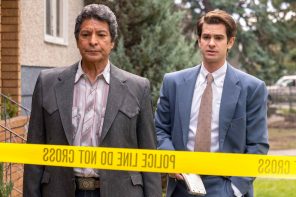Coverage is beginning to pick up on a story first reported last Friday in Provo, Utah’s Daily Herald about the LDS Church applying a form of ecclesiastical pressure to get local residents who oppose the building of a nine-story LDS Church building in their neighborhood to relent.
Residents in the Pleasant View neighborhood of northeast Provo had been assured by their local LDS Church leaders that it was okay to express concern about the building of a new nine-story Missionary Training Center that would significantly alter this residential and heavily LDS neighborhood in the foothills of the Wasatch Mountains.
But then, local residents received messages that high-ranking LDS Church officials wanted them to drop their opposition. As reported in the Herald, the head of the campaign said, “I received an invitation from a Church of Jesus Christ of Latter-Day Saints ecclesiastical leader relayed from a member of the Quorum of Twelve Apostles… The invitation was to support the decision of the First Presidency and the Quorum of the Twelve Apostles to build a nine-story building at the Provo Missionary Training Center. I accept the invitation.”
In one LDS congregation near the proposed building site, local LDS Church leaders read a similar message over the pulpit to congregants and taught Sunday School lessons on “sustaining Church leaders.”
In the lexicon of Mormonism, the use of words like “invitation” and “sustaining” and the involvement of the LDS Church’s high-ranking Quorum of Twelve Apostles sent a clear message to observant Latter-day Saints who value obedience to authority as a crucial religious commitment.
That flexing of religious muscle in a secular matter during a closely-watched election year has raised concerns even in Provo, which is as close as you’ll get to an Mormon company town. On Sunday, the Provo Daily Herald described the LDS Church’s involvement as an effort to “silence” opposition and posed questions linking the controversy to the Romney campaign:
What we’re seeing in the MTC controversy is a clear crossover of faith into politics, and that seems okay from a Church perspective…
Does all this have any broader implication? Perhaps. Concerns have been raised, for example, about former stake president Mitt Romney’s susceptibility to religious influence. What sort of invitation might cause an LDS president of the United States to reverse his independent judgment on some issue of importance to the brethren? Once that possibility enters the picture, as it now has at the MTC, the questions could reverberate far beyond Provo.
With coverage today by McKay Coppins at BuzzFeed, it appears those questions may begin to reverberate.
As was the case with Kennedy, the public has harbored questions about how Romney’s membership in a religion with a strongly centralized chain-of-command would impact his presidential decision-making. These questions are compounded by Romney’s own course of unblinking loyalty to the interests of big institutional backers in both business and religious life, as well as by what the Wall Street Journal recently described as the exceptional “insular[ity]” of his campaign and Romney’s own refusal to accept unscripted questions from the press corps. Add to it the ever-louder Obama campaign drumbeat over Romney’s offshore bank accounts, and the net effect is a characterization of Romney (and with him, Mormonism) that draws on old-time Mormon stereotypes of insularity, secrecy, and top-down authoritarianism.
It would be wonderful if these stereotypes could be dismissed out of hand as bearing no relation to reality.




